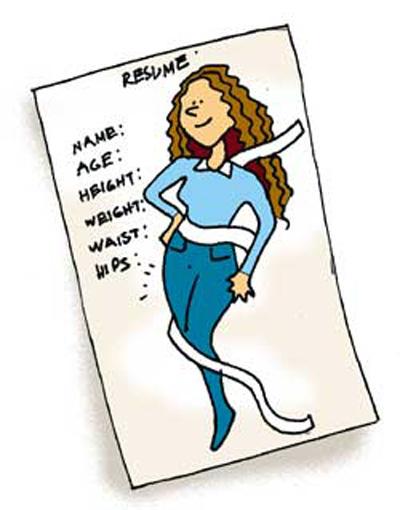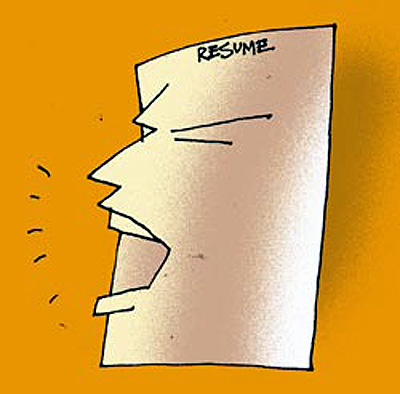Courtesy YouthIncMag
A blood sacrifice? Your firstborn? Jai Vipra sets out on a quest to find the answer and discovers that employers are surprisingly mild, non-demanding creatures. Illustrations by Uttam Ghosh and Dominic Xavier
It’s a question every fresher who has been unceremoniously rejected during interviews asks.
And every confused student wants an answer.
What do employers want? What will make “We do not currently have any positions open” change into “You’re hired”?
We've broken the answer up into segments.
How important are my communication skills?
Your communication skills turn out to be very important when hiring is concerned.
Vishakha Wadhwani who interns at DNA, says, “Ultimately it is your personality as a whole along with communication skills that are important.”
Generally, your first introduction to the employer is through the written word, either in the form of an e-mail or a resume.
Make sure you do not use txtspk (SMS language); this will jeopardise your chances at interstellar transport speeds.
According to one study, body language comprises 55 per cent of the force of any response.
You do not want more than half of your response to be disappointing -- use non-verbal cues wisely.
Courtesy:

Please click NEXT to continue reading...
How important are my marks/GPA?
Sadly, no matter how much you deride the education system in India and how grading is unfair and so on, employers do care about your marks.
Subodh Nath Jha, a retired IAS officer, says, “GPA or marks are especially important because the student has been evaluated by a plethora of people which gives ample evidence of his or her competence.”
And in most industries, employers may well use marks to create preliminary shortlists.
A low score may prevent employers from looking at your other brilliant achievements.
So postpone that rebellion and study for your exams.
Should I do that internship?
The answer for this, always, is yes.
Internships give you a taste of the real world and much-needed experience of professionalism.
Sonal Jain, who has done a ton of internships and has recruited interns for betweenthelines.in, says, “A lot of people have the potential, but it is good to have some evidence as to whether a candidate can use that potential. Internships provide just that evidence.”
Karanpreet Singh, training and placement representative at the IIT Ropar, agrees: “For engineers, internships are the only way to get industrial exposure before graduation. They also help you decide whether a certain field is right for you.”
How important is the brand name of my institute?
Before you cry yourself to sleep because you didn’t get into an IIT, read what Vikram Shah, founder of LemaLabs has to say: “For a start-up, the brand name of a college does not mean much. Skill sets are far more important. Also, if you have a great track record with internships and projects, that matters more than the name of your college.”
Shah has hired freshers from not-so-great colleges but with spectacular skills.
Some government internships do prefer premier institutes, but these are few and far between.
How important is the creativity of my resume?
Krishna Vamsi, HR at Jaipur Rugs, says, “A unique way of representing the resume attracts the eye of the recruiter.”
A creative resume does help you get a foot in the door, but what really matters is relevance.
Sarvesh Agrawal, founder of Internshala and a regular reviewer of resumes, says, “Relevant information shouldn’t be hidden amidst a clutter of nonsense. How do I care that you won a swimming competition when you're applying for a programming position? A resume should show skills you posses which make you a relevant candidate.”
Non-verbal communication: Dos and don'ts to follow
Smile when you greet the interviewer.
Sit up straight. Slouching gives an instant bad impression.
Make eye contact, but don’t look like you’re staring into their soul.
Don’t fidget; hold a pen or a file if you must.
The anatomy of a great resume
What can you do to ensure that your CV gets noticed by the employer?
1. Summarise!
(Remember babbling is not 'hot')
Begin with a summary on your unique value.
Tell employers who you are.
Talk about your skills and qualifications.
A good summary can be used as the basis for this interviewer favorite: “Tell me about yourself”.
2. Confidence!
(Everyone is attracted to a candidate who is confident!)
Talk about your accomplishments.
Tell employers how you’ve made a different in current/previous roles.
This is not the time for humility!
3. Watch your language!
(So self absorbed? No thanks)
Don’t start sentences with I, We or Our.
Don’t even use full sentences.
Bullet points with strong actions verbs have more impact.
4. Keywords are key
(Tip: Talk nerdy to me)
Awful truth: Often, resumes are not even read by your prospective employer.
Resumes are often scanned either by a person or a machine.
They are looking for keywords that match their hiring criteria.
You can try using keywords from the job listing to improve your chances.
Out-of-the-box resumes
Infographic resumes are gaining popularity.
Philippe Dubost sent recruiters a link for an Amazon product: Himself! See phildub.com.
A marketing professional made a resume that looked like a chocolate bar -- complete with information on ingredients and serving size.
Video resumes are all the rage -- make one if you plan to get into the media industry.
If you're close to graduating and out of time to develop all these skills, Sarvesh Agrawal has some wise words:
“Employers look for students who score high both on skill and will. ‘Skill’ refers to a candidate’s ability to work and ‘will’ refers to their willingness to work. One may still make a minor compromise on skill but compromising on will is a recipe for failure. Skills can be taught, will cannot.”
Be sure to let the employer know you're willing to work, and while you’re at it, make the best of your skills!









Comment
article